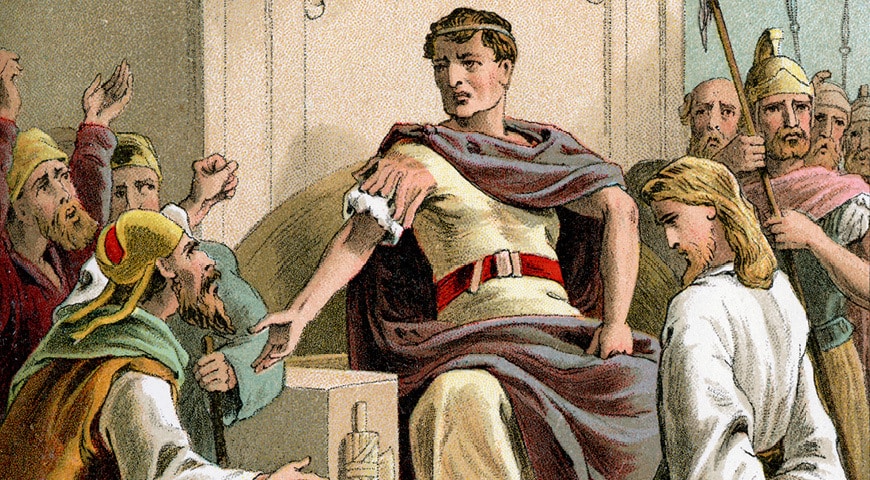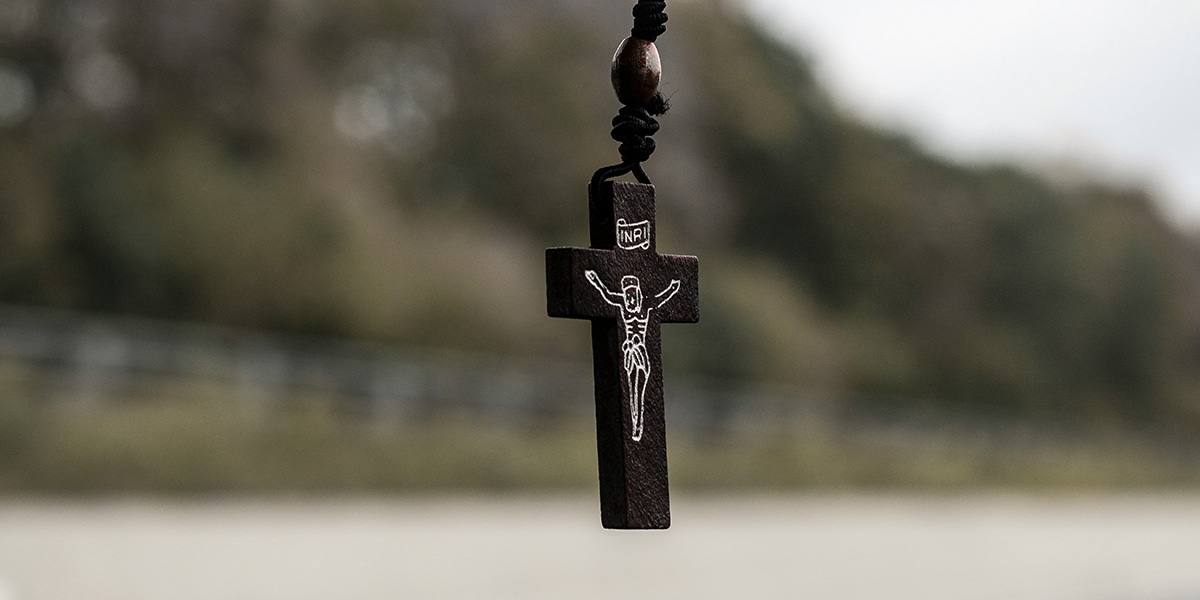How are Christians to accept two completely different versions of Christ’s trial before Pilate? In Mark, Pilate sentences Jesus to death, but in Matthew, Pilate washes his hands, declaring himself innocent of Jesus’ blood.
In fact, there is no real contradiction here. The Romans reserved capital punishment to themselves. That is why Pilate indicated the sign to be posted regarding Jesus’ crime as he saw it (Mk 15:26). John 18:31 indicates that when Pilate told Jesus’ Jewish accusers to judge him according to their law, they replied, “We do not have the right to execute anyone.” According to the Law of Moses, Jewish people guilty of blasphemy must be executed.
The fact that Jesus’ execution was carried out by Roman soldiers indicates that Pilate’s statement that he was “innocent of this man’s blood” (Mt 27:24) is not entirely true. In fact, about six years after Jesus died and rose, Pilate was removed from his position as procurator because of excessive cruelty toward the Jews. And the Romans could tolerate a great deal of cruelty.
All of this should remind us that the Scriptures need to be read together and within the faith community. We should resist the temptation to pit one biblical account against all others.
In its 1965 decree on the relationship of Christianity to all non-Christian religions, the bishops at Vatican II taught that not all Jews in Jesus’ day or since then were/are responsible for Jesus’ death.








